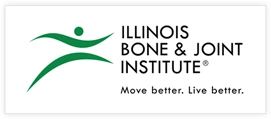Recurrent Rotator Cuff Tears
Recurrent rotator cuff tears are injuries to the muscles and tendons that comprise the shoulder’s rotator cuff after an initial surgical repair. Management strategies for these injuries depend on factors like age, activity level, size of the tear, and the health of the shoulder muscles and tendons. These are difficult problems and can arise from a variety of factors, including, but not limited to, age, degenerative tissue, inherent healing ability of the rotator cuff, non-compliance with rehabilitation, re-injury, smoking, diabetes, and loss of surgical fixation.
- Persistent pain, especially with overhead activities.
- Weakness in the arm.
- Snapping or crackling sensation when moving the shoulder.
- Difficulty or inability to lift the arm.
- Night pain or discomfort.
- Decreased range of motion.
Conservative management includes:
- Rest and activity modification.
- Physical therapy to strengthen the shoulder muscles and improve flexibility.
- Nonsteroidal anti-inflammatory drugs (NSAIDs) to reduce pain and inflammation.
- Corticosteroid injections for short-term pain relief.
- PRP injections for more mid-term pain relief.
- Laser therapy for anti-inflammatory control and pain relief.
Surgical treatment options:
Revision Rotator Cuff Surgery with Augmentation using Regeneten Bioinductive Implant:
- Benefits: Encourages the body’s natural healing response, potential for a reduced risk of re-tear.
- Risks: Infection, failure of the implant, potential for stiffness or loss of motion.
- Recovery: 4-6 months for full recovery.
Superior Capsule Reconstruction:
- Benefits: Restores shoulder stability and function in cases with irreparable rotator cuff tears through the use of a dermal allograft.
- Risks: Graft failure, stiffness, nerve injury, persistent pain
- Recovery: 6-9 months to return to full activity.
InSpace Balloon:
- Benefits: Minimally invasive, acts as a spacer and changes biomechanics of the shoulder to relieve pain
- Risks: Balloon migration or rupture, infection, lack of symptoms relief.
- Recovery: 3-6 months for full recovery.
Muscle Transfers:
- Benefits: Restores function by transferring healthy muscle to compensate for a torn rotator cuff.
- Risks: Muscle weakness at the donor site, graft failure, nerve injury.
- Recovery: 6-12 months to regain strength and function.
Reverse Total Shoulder Arthroplasty:
- Benefits: Ideal for older patients or those with combined rotator cuff and arthritis problems, restores shoulder function by reversing the anatomy.
- Risks: Infection, implant loosening or wear, nerve damage.
- Recovery: 4-6 months for most daily activities
The prognosis after a recurrent rotator cuff tear depends on the treatment method, the patient’s age, activity level, and general health. Conservative treatment often provides relief, but surgical intervention may offer a more definitive solution. Recovery time varies based on the procedure but typically ranges from 4 months to a year.
In conclusion, recurrent rotator cuff tears present a challenging problem that requires individualized care. While conservative measures are always the first line of treatment, surgical options, each with its risks and benefits, offer various solutions tailored to the patient’s needs and the severity of the injury. Regular follow-up and adherence to post-operative rehabilitation are key components to achieving the best possible outcome.
At a Glance
Ronak M. Patel M.D.
- Double Board-Certified, Fellowship-Trained Orthopaedic Surgeon
- Past Team Physician to the Cavaliers (NBA), Browns (NFL) and Guardians (MLB)
- Published over 49 publications and 10 book chapters
- Learn more

